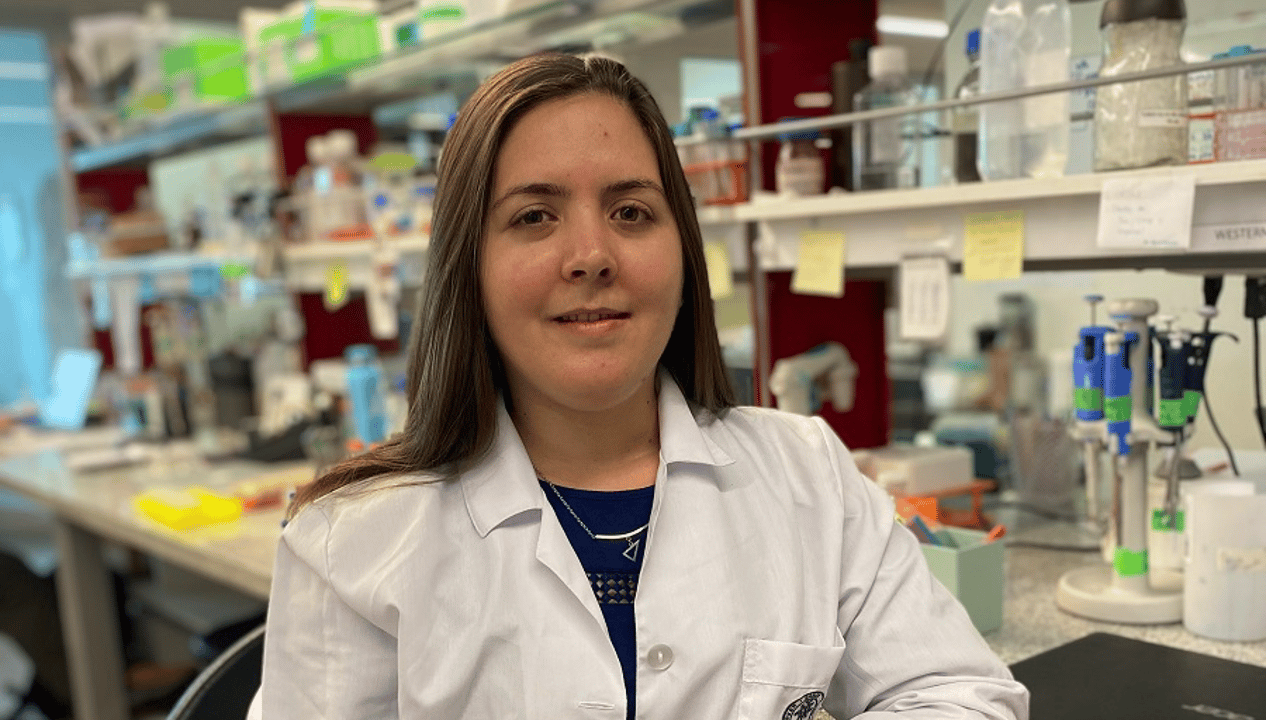In a new episode of Rockstars, Gabriel León spoke with Laura Hernández, a doctoral student in Cell Biology and Biomedicine at the San Sebastian Universitywho gave details about his doctoral thesis on the presence of proteins in cancer cells, and how to understand that this process could help fight cancer.
To carry out this thesis, Laura Hernández decided to focus mainly on breast cancer, specifically on the Triple Negative subtype, due to the increase in cases of the disease in our country. “Here in Chile in recent years the figures have been growing, and Triple Negative is the most aggressive subtype of breast cancer and has few ways to treat it, chemotherapy being what is mainly used to treat patients.”
According to what Laura Hernández explains, the basis of this thesis and whose research has as its ultimate goal to be able to improve the response to treatments to combat cancer, is in the proliferation of proteins in the tumor cell and what is the process that exists to prevent it from dying, unlike healthy cells. “The tumor cell is constantly secreting proteins in order to grow, develop and proliferate, we want to know how it does so so that this deregulation process does not lead to its death. In a healthy cell, normally when a process is deregulated, especially in this matter of the exacerbated creation of proteins, it dies”.
Specifically, healthy cells cannot survive when this excess of proteins is not degraded, since if there are many proteins, they accumulate and cannot fulfill their function, something that does not happen in tumor cells and they survive this excess of proteins. In order to arrive at a reason for how this occurs, Laura Hernández, as part of her study, focused on a protein that is part of a specific protein complex located in the endoplasmic reticulum, which is where proteins pass along of their synthesis and unfold towards the place where they must fulfill their function. “If we affect this complex, we deprive the tumor cell of a tool to destroy misfolded proteins, and therefore it can lead to the death of the tumor cell or to its sensitivity to an anticancer treatment.”
This inference that his thesis may have in cancer treatment becomes more relevant in patients with breast cancer, since the Triple Negative subtype only responds to chemotherapy, and in many cases, with the passing of sessions, it loses effectiveness. “This is the cancer with the highest incidence and mortality among Chilean women. In the case of Triple Negative, treatment strategies are limited and a condition that occurs a lot is that a third of patients stop responding to chemotherapy; if it was effective at first, after a while it stops being so and the tumor is more aggressive”.
Regarding the results of her study, Laura Hernández details that “If we manage to detect an element that can serve to improve these therapies, it would be something very relevant in the clinical field to improve the effectiveness of these treatments”. In order to go from the laboratory desk to a direct impact on society and patients, Hernández is working with the Arturo Lopez Perez Foundationwhich treats cancer patients, this after winning a thesis competition, which has led her to be able to apply her studies directly in real cases.
This alliance allowed him to go from working with cells in a laboratory counter, to working with patients of the foundation, being able to join both worlds. “We can evaluate protein levels of this protein in samples from breast cancer patients in scenarios without treatment and after treatment, which sheds light on whether the protein can be a diagnostic or predictive biomarker signal of response to chemotherapy”which would even allow in the future to establish whether a patient should be treated with specific drugs or not, achieving an impact on treatments to combat not only breast cancer.
–


